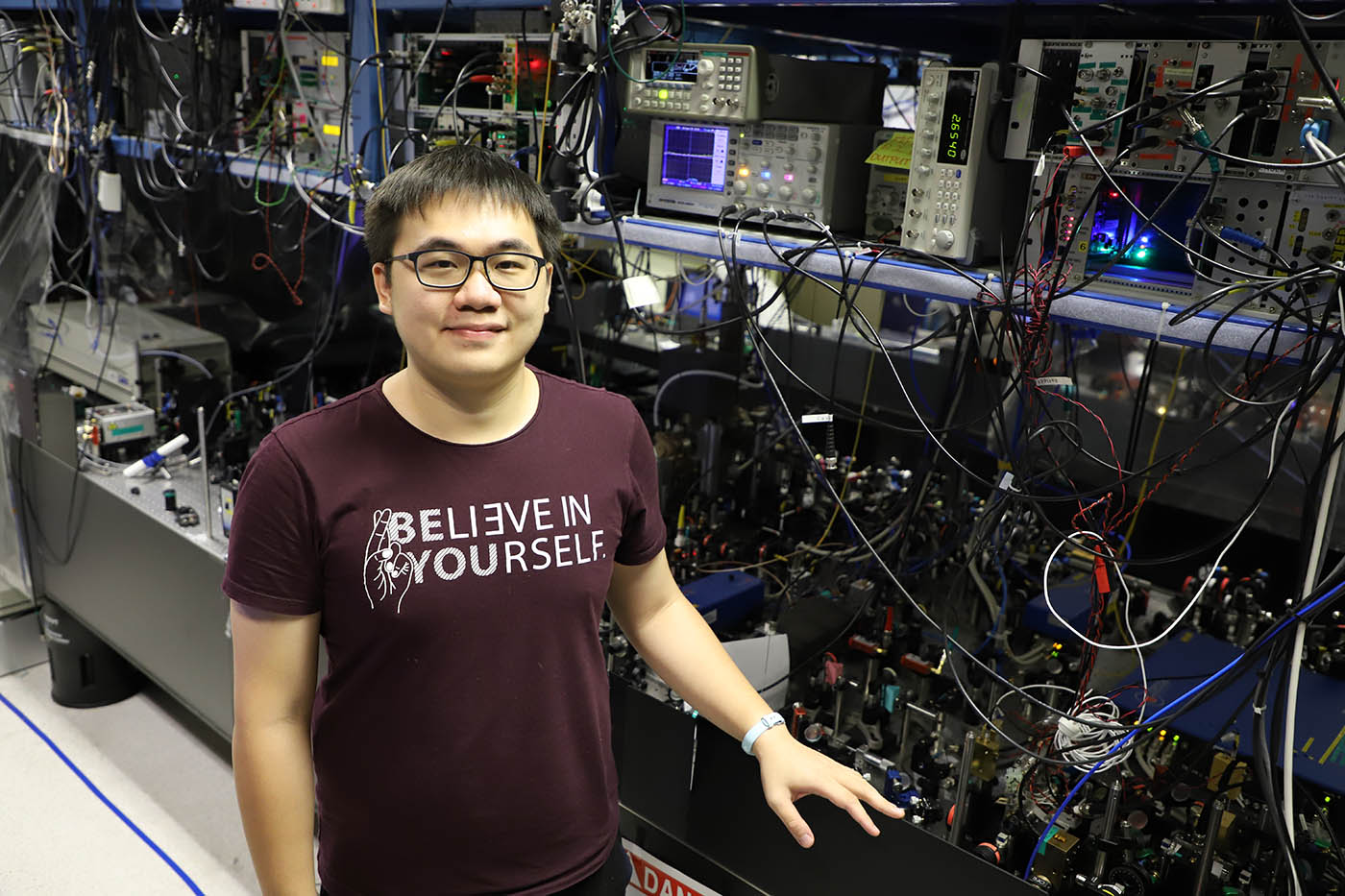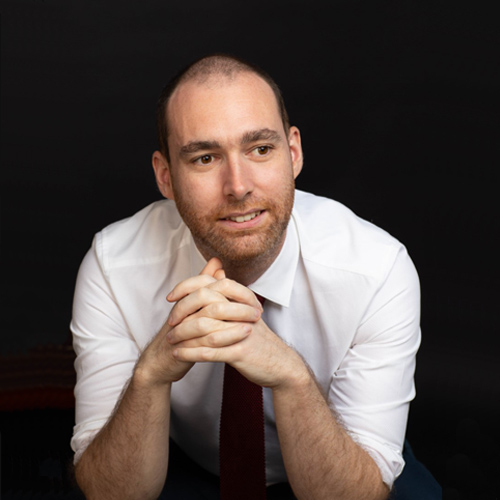Highlights
Meet a CQTian: Tseng Ko-Wei
 Ko-Wei works on experiments that involve precise control of trapped ions for information processing.
Ko-Wei works on experiments that involve precise control of trapped ions for information processing.
Who are you?
I’m Ko-Wei, a third-year PhD student from Taiwan. I do experimental projects in trapped ion systems in Dzmitry Matsukevich’s lab. We are working on quantum computing and quantum information science.
I first came to CQT as an intern, also in Dzmitry’s lab, when I was an undergraduate at the National Taiwan University (NTU).
Tell us a little bit about your work.
Trapped ions are a platform for quantum information and computing, including quantum machine learning.
We are trying to use the trapped ions platform to calculate the inner product of two vectors. This would be useful for machine learning because the inner product is the key component for the kernel method, which is a popular way to do machine learning.
To get the inner product, we need to multiply the vectors. On a classical computer, the time needed to do this calculation grows linearly as the dimension of the vectors grows. We want to demonstrate that we can calculate the inner product faster. The physical setup of our lab is to focus on the vibrational modes of trapped ions, which are infinite dimension harmonic oscillators. An oscillator can encode way more information than a qubit, given the same physical system. After encoding the vectors in oscillators, we can perform an operation known as a SWAP test to get the inner product. This should take a constant number of gate operations, for any dimension of vectors, as compared to the linear growth in the classical world.
Has work been affected by the circuit breaker?
At the end of March, the labs shut down. As we slowly returned to our lab in June, it was a slow process to rebuild everything. This is mainly because of the precision needed in our experiment setup. Our lasers are aligned precisely down to tenths of a micrometre. At this level of precision, the alignment is easily disrupted. Without the daily maintenance that we would usually do, realigning everything was difficult. Putting everything together again was one of the main challenges when we got back to the lab, but we have restored the system and are collecting more data for our experiment again now.
How did you get interested in quantum physics?
I have a strong desire to explain and construct a framework of the world. It began from my love for reading, which has been my hobby since I was in elementary school. Wanting to know more about the universe, I started reading about the history of science and biographies of great scientists. I also joined the physics club in high school. Even before I entered college, my interest in quantum physics was already very strong. But it was three later events that made me really want to pursue it.
What were they?
In 2012, David Wineland won the Nobel Prize for his work with trapped ions. For me, that was a key milestone when I really paid attention to quantum science and trapped ions. It really left an impression on me.
After I started my undergraduate studies, the university hired a new PI to do quantum information science theory. I thought that it showed that the field was growing and there was a lot of potential, so my interest in quantum physics grew.
In the beginning of my second year of undergraduate, Alain Aspect, one of the first experimentalists to show a violation of the Bell inequality, came to NTU to give a nice talk. By this time, I was pretty sure that I was going to pursue quantum physics.
Will you continue in research after your PhD?
I want to do a postdoc and then we will see. I want to be a researcher, but it is not necessary to stay in academia to do quantum research. There are now a lot of quantum startups and even big tech companies doing quantum research too.
Tell us about your role in the CQT graduate students club.
I help to organise monthly dinners for the graduate students. For a foodie and outgoing person like me, there is no better way to make new friends and enjoy delicious food at the same time. Besides our monthly dinners, the club also organises weekly board games nights and career and industry seminars from time to time. Covid-19 stops us from socialising in person at the moment, so we are having some events online.
What are your hobbies?
Besides reading, I was also the president of the science fiction club in my undergraduate years. Part of the club’s activities involved watching science fiction movies which I really enjoyed as well. Some favourite movies I would recommend are Ghost in the Shell (1995), Transcendence (2014) and Expelled from Paradise (2014). I also have a blog where I write (in Chinese) about my thoughts, my daily life and what I am reading.
Learn more
Related Stories
 | Meet a CQTian: Steven Touzard September 09 2020 |
 | Making headway with a hybrid approach to quantum computing May 08 2020 |
 | Hybrid machine learning algorithm optimises engineering of quantum sensors August 28 2020 |






